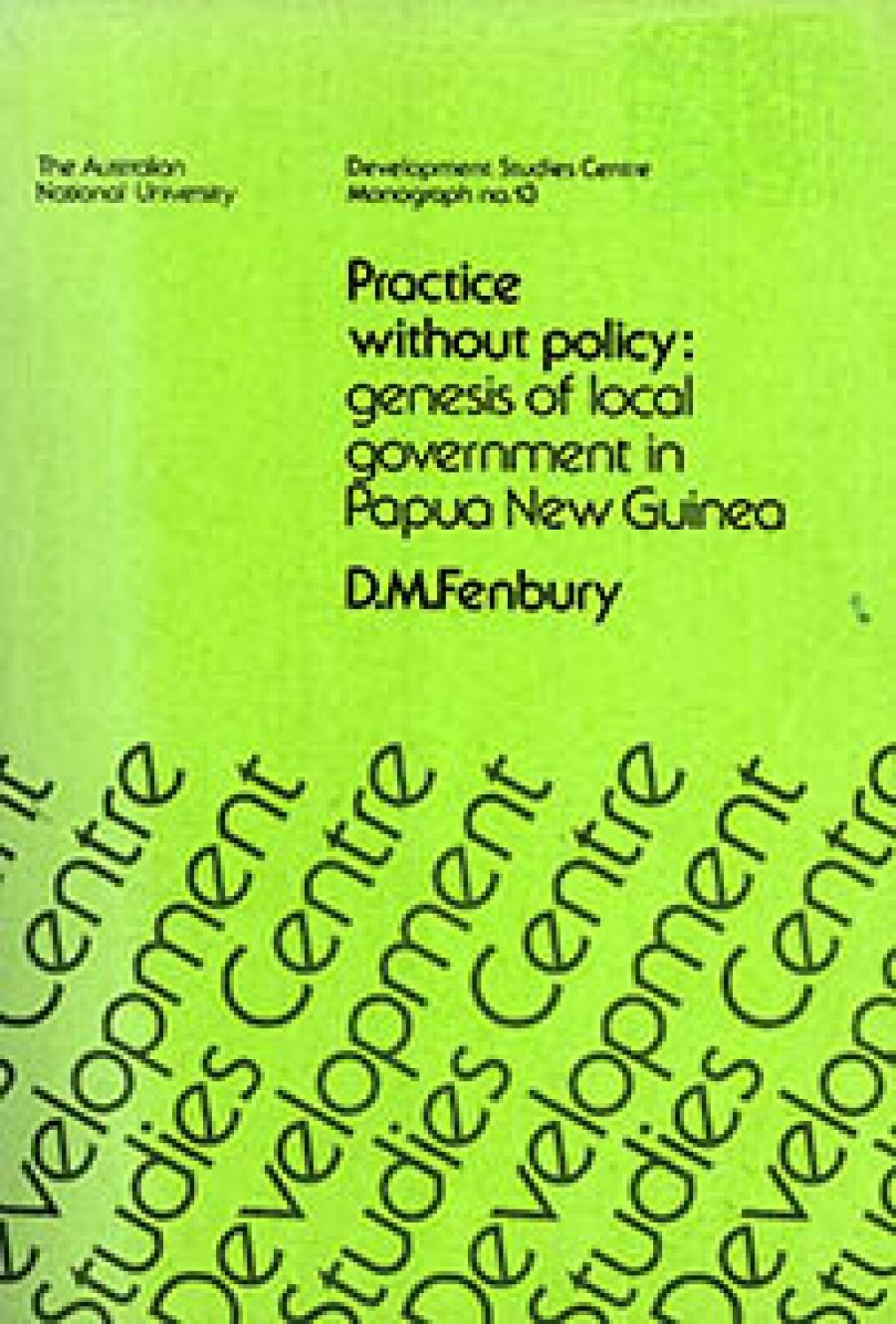
- Free Article: No
- Contents Category: Politics
- Review Article: Yes
- Article Title: Decay before development
- Online Only: No
- Custom Highlight Text:
This book is about the early stages of the establishment and evolution of native local government councils in Papua New Guinea. The author, David Fenbury, was in charge of the first phase of this undertaking and the objective of his book was to record the early sequence of events. He begins with an overview of the local government system in 1975 in a state of decay even while it was being extended to the few remaining areas that it had not reached by the time of independence.
- Book 1 Title: Practice without Policy
- Book 1 Subtitle: Genesis of local government in Papua New Guinea
- Book 1 Biblio: Australian National University Press, 318pp, $9 pb
It might be expected then that the theme would be – what went wrong? However, Fenbury eschews any analysis so sweeping and confines himself to making a record available. But he does blame three or four early events and influences for having crippled the local government system almost from the start.
It began as an intended multi-functional system but in his view was undermined by a failure to introduce general taxation of indigenes and by the withdrawal of the councils’ responsibilities for law and order and village courts. The latter occurred in 1961 following a report on the legal system to the Administration by D.P. Derham. However, unofficial courts continued to function and in 1974 the newly independent government began to introduce a village court system, though it was much too late to help save local government.
Other obstacles were what the author saw as a lack of commitment and interest by the long-time Minister for Territories, Paul Husluck. As evidence he cites the virtual absence of references to local government in Hasluck’s own book, A Time for Building. The basic conflict uncovered is that between the grass roots view of development as grafting new rules and activities on to the organic wholeness of village and tribal society – Fenbury’s approach – and the top-down ethnocentric view insisting on the essentiality of separation of parts and specialisation on a western society model.
In the event it is the organic approach which is being more nearly reflected in contemporary Papua New Guinea, but Fenbury does not claim or aim to cover so much. The book extends little beyond 1961 when Fenbury ceased his close involvement in local government. The book was not intended as a comprehensive history of local government, and its virtues are rather the details of experiences and reactions of the time, though tragically, Fenbury did not live to complete this account and it has been finished by colleagues.


Comments powered by CComment